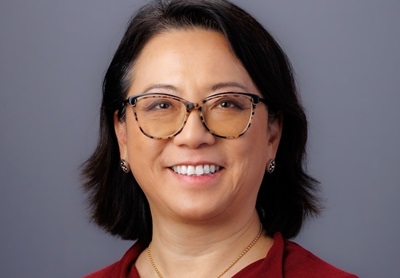Cardinal Health MarketSM
The legacy Cardinal.com Medical Ordering site has been replaced with Cardinal Health MarketSM, a new product experience designed with you in mind.

By Nini Wu, MD, MBA, Chief Medical & Development Officer, Specialty Health
No matter who you are, hearing the three words “you have cancer” sets off an emotional roller coaster vacillating between shock and disbelief to acceptance and determination. The minute we as clinicians utter those words, patients want to know as much as they can as soon as they can to develop a treatment plan to outsmart cancer and beat it at its own game. Countless clinical studies as well as our own first-hand accounts as clinicians seeing patients in the community tell us that while cancer biology and genetics play a significant role in health outcomes, a patient’s ZIP code and other social determinants of health have as much, if not more of an impact on their prognosis. This means that, for far too many patients, geographic and socioeconomic barriers stack the cards against them before they even begin their cancer fight.
The promise of practical to expand equitable access to care
Every February, the oncology community commemorates World Cancer Day, a singular initiative designed to unite the world in the fight against the global cancer epidemic. It’s an incredible annual observance during which every major stakeholder in the global cancer community—from the World Health Organization to Congress and every clinical, research and advocacy organization in between—comes together to raise awareness and redouble their efforts on reducing the global impact of cancer. This year’s World Cancer Day focus is on closing the cancer care gap and creating a more equitable care experience for all. Having spent 20 years practicing community oncology and running a practice, I often reflect on how technology can help close these care gaps—but not in the way you might think.
While the advent of AI, machine learning and other cutting-edge advances in technology are everywhere we turn, AI cannot transport a patient to treatment or address food insecurity (at least not yet). To tackle practical problems and close real cancer care gaps in the community, we need to embrace practical technology.
Sometimes the most simple, straightforward technology is exactly what we need to get the job done—a sentiment that takes me back to my childhood trips to Taiwan to visit my grandmother. During my visits I would watch my grandmother wash clothes by the river that ran beside her house. I remember being awestruck by the process, the many steps involved, and the incredible amount of time spent. While the process was fun at the time, I now think about how much time my grandmother could have saved by using a washer and dryer. My grandmother didn’t need AI to do her laundry more efficiently: she simply needed trusted, reliable, and practical technology. This same premise holds true when we think about leveraging straightforward technology to close the cancer care gap.
Going back to basics to move community oncology care forward
At Cardinal Health, I’m focused on enabling independent community oncology practices to continue to deliver care to patients where they want to receive it—in the local community. While I’m excited about how we will help deliver cutting-edge technologies such as remote patient monitoring and AI-enabled analytics in the community oncology setting, I’m also passionate about helping community oncology practices go back to basics to address social determinants of health. I often think about how we can walk back technology, moving from “smart” to analog when the situation calls for such an approach. For example, if an elderly patient is not comfortable using a smartphone, perhaps we leverage cell technology to call them instead. When we meet patients where they are, we broaden access and close gaps in care.
To move the field forward and realize the full promise of emerging technologies and therapies we must help community oncology practices address the fundamental issues their patients face today. For instance, step one of enrolling a patient in a genomics clinical trial should be ensuring patients can access and read consent forms, regardless of smartphone access or native language.
By going back to basics with technology to combat barriers to care and enabling community oncology practice success, together we can help close the cancer care gap not just for World Cancer Day, but every day.
As Chief Medical & Development Officer, Specialty Health at Cardinal Health, Dr. Wu leads a team focused on supporting and empowering community oncology practices to maintain their independence while providing high-quality, patient-centered care. Dr. Wu, who spent 20 years practicing community oncology and running a community oncology practice, is passionate about drawing upon her diverse background to optimize the clinician and patient experience while supporting diversity, equity, and inclusion across all aspects of healthcare delivery.